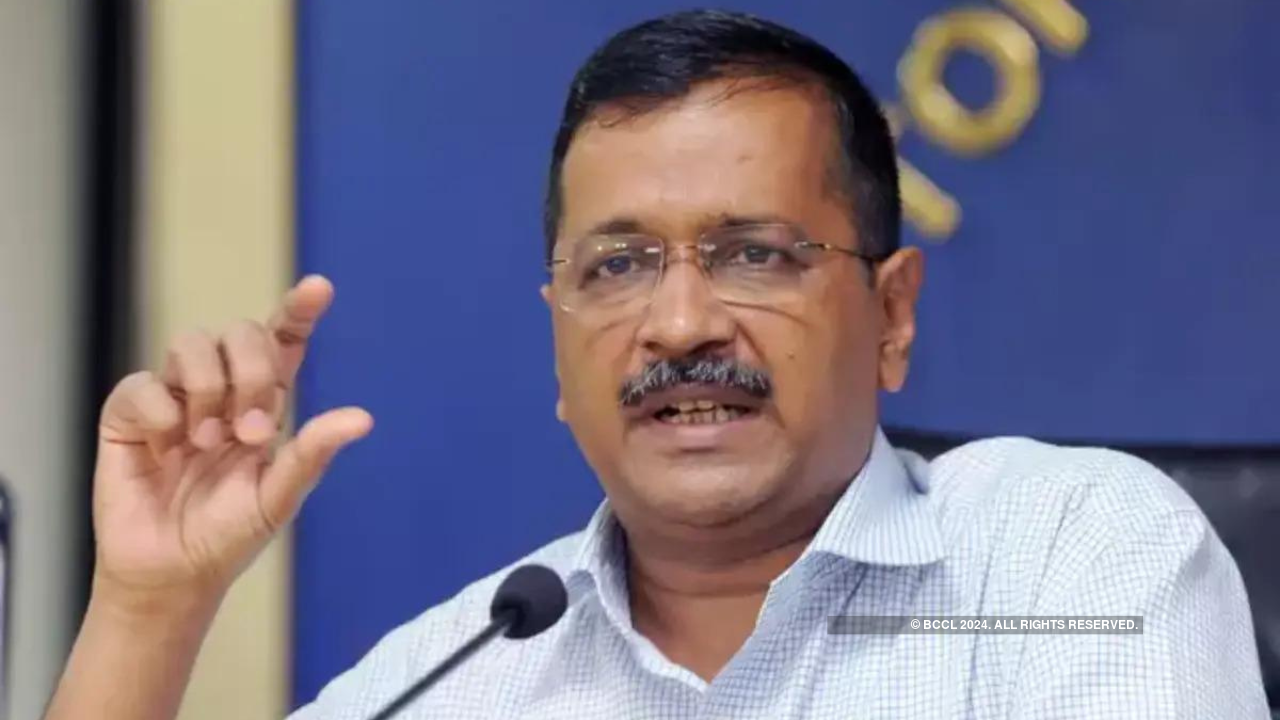NEW DELHI: A Delhi court issued summons on Wednesday to CM Arvind Kejriwal on a plea by Enforcement Directorate that he was “legally bound” to attend in person in response to a summons issued to him in a money laundering case related to the now-scrapped excise policy but had failed to do so. Kejriwal has to appear before the court on Feb 17.
The court issued summons to Kejriwal under IPC Section 174 (non-attendance in obedience to an order from public servant) stating, “The delivery of such summonses is prima facie evidenced from the fact that the proposed accused sent replies to them dated 02.11.2023, 20.12.2023 and 03.01.2024 wherein inter alia reasons for non-appearance were set out.”
Accused intentionally omitted to obey summonses: ED
By virtue of Section 50(3) of the Act, the respondent of the summonses, i.e.the proposed accused, was legally bound to attend in person in pursuance of the same but purportedly he failed to do so,” the court of Divya Malhotra, additional chief metropolitan magistrate, Rouse Avenue, said.
The court said that at the stage of cognisance and in determining whether a process needs to be issued, a magistrate has to be satisfied only about the ingredients of the alleged offence being made out and if there are sufficient grounds for proceeding, and not if there are sufficient grounds for conviction.
Observing that the persons summoned by ED are bound to comply by virtue of Section 50(3) of PMLA, the court said: “In view of the discussion held above, the complaint filed by the complainant accompanied by the supporting documents discloses all the necessary ingredients constituting the offence punishable under Section 174 of IPC. Section 63(4) of PMLA enables prosecution under Section 174 of IPC for disobedience of any direction under Section 50 of the Act.”
ED had last week moved court alleging that the AAP leader was not complying with the summons. The agency had submitted that to unearth the role of others, including that of Kejriwal, to trace further proceeds of crime, the investigating officer needed to examine him and had summoned him in exercise of his powers under Section 50(2) of PMLA.
“The proposed accused has intentionally omitted to obey the summonses and to attend at the place and time mentioned, which intention is manifest from the objections and queries raised by him in his replies,” ED told the court.
The agency had said that Kejriwal’s replies were “frivolous”, adding that the summonses were termed “unsustainable in law” for their failure to disclose the capacity in which the respondent was being called – as a witness or suspect. “To sum up… there are sufficient grounds for proceeding under CrPC Section 204 against the accused,” the court said in its order.
Kejriwal has so far skipped five ED summonses – on Nov 2, 2023; Dec 21, 2023; Jan 3, 2024; Jan 18; and Feb 2. However, ED has moved court over non-compliance of three summonses only – the ones issued on Nov 2, Dec 21 and Jan 3.
The court issued summons to Kejriwal under IPC Section 174 (non-attendance in obedience to an order from public servant) stating, “The delivery of such summonses is prima facie evidenced from the fact that the proposed accused sent replies to them dated 02.11.2023, 20.12.2023 and 03.01.2024 wherein inter alia reasons for non-appearance were set out.”
Accused intentionally omitted to obey summonses: ED
By virtue of Section 50(3) of the Act, the respondent of the summonses, i.e.the proposed accused, was legally bound to attend in person in pursuance of the same but purportedly he failed to do so,” the court of Divya Malhotra, additional chief metropolitan magistrate, Rouse Avenue, said.
The court said that at the stage of cognisance and in determining whether a process needs to be issued, a magistrate has to be satisfied only about the ingredients of the alleged offence being made out and if there are sufficient grounds for proceeding, and not if there are sufficient grounds for conviction.
Observing that the persons summoned by ED are bound to comply by virtue of Section 50(3) of PMLA, the court said: “In view of the discussion held above, the complaint filed by the complainant accompanied by the supporting documents discloses all the necessary ingredients constituting the offence punishable under Section 174 of IPC. Section 63(4) of PMLA enables prosecution under Section 174 of IPC for disobedience of any direction under Section 50 of the Act.”
ED had last week moved court alleging that the AAP leader was not complying with the summons. The agency had submitted that to unearth the role of others, including that of Kejriwal, to trace further proceeds of crime, the investigating officer needed to examine him and had summoned him in exercise of his powers under Section 50(2) of PMLA.
“The proposed accused has intentionally omitted to obey the summonses and to attend at the place and time mentioned, which intention is manifest from the objections and queries raised by him in his replies,” ED told the court.
The agency had said that Kejriwal’s replies were “frivolous”, adding that the summonses were termed “unsustainable in law” for their failure to disclose the capacity in which the respondent was being called – as a witness or suspect. “To sum up… there are sufficient grounds for proceeding under CrPC Section 204 against the accused,” the court said in its order.
Kejriwal has so far skipped five ED summonses – on Nov 2, 2023; Dec 21, 2023; Jan 3, 2024; Jan 18; and Feb 2. However, ED has moved court over non-compliance of three summonses only – the ones issued on Nov 2, Dec 21 and Jan 3.
